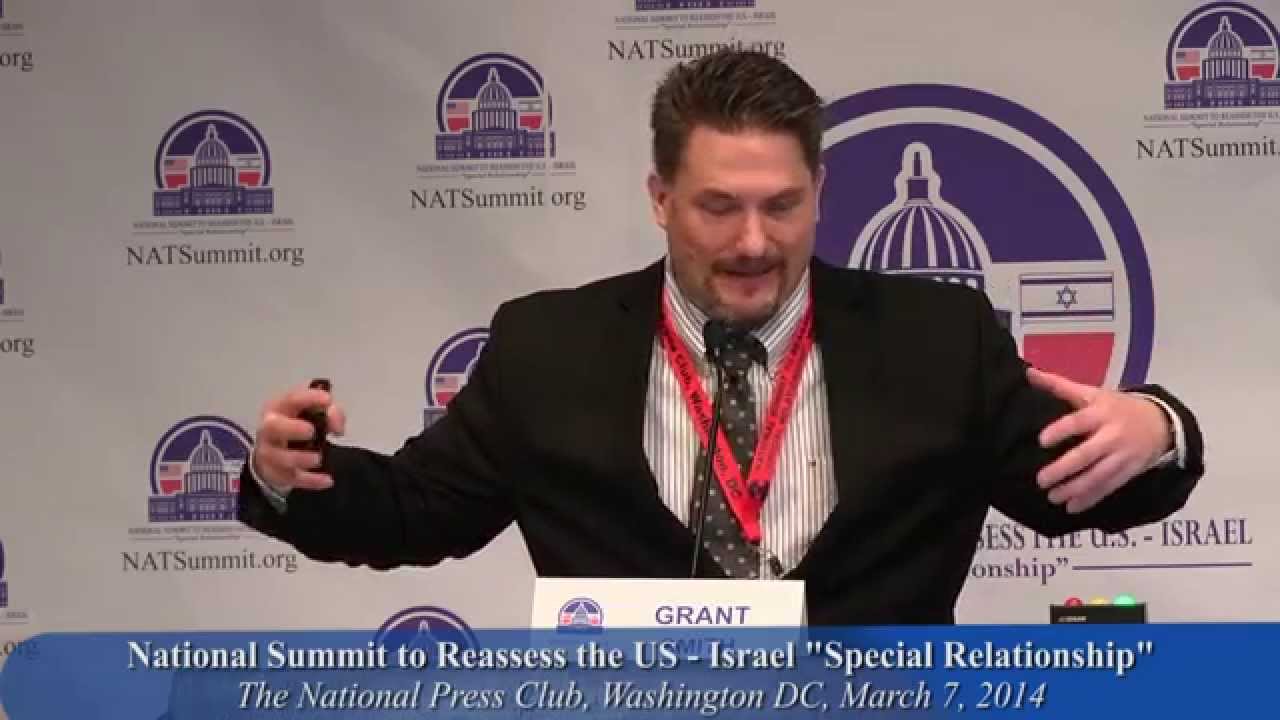Head of Mid-East Think Tank Suing Obama over Aid to Nuclear Israel
 Israel would be so much better off if they did not rely on foreign U.S. aid.
Israel would be so much better off if they did not rely on foreign U.S. aid.
Grant Smith, director of the Institute for Research: Middle East Policy (IRMEP), has filed a lawsuit against the entire US government, including President Obama, Secretary Kerry, CIA Director Brennan and Defense Secretary Carter, seeking declaratory and injunctive relief for the $234 billion the US has given Israel in military foreign aid since 1976 — in violation of US law that prohibits aiding countries with nuclear capability who are non-signatories to the Nuclear Non-proliferation Treaty (NPT).
Smith insists that his lawsuit is not about foreign policy (which the court would have dismissed outright), but “about the rule of law, presidential power, the structural limits of the US Constitution, and the right of the public to understand the functions of government and informed petition of the government for redress.”
In an article Smith published in Sept. 2014, when the current lawsuit was initially launched (Lawsuit Challenges U.S. “Ambiguity” Toward Israel’s Nuclear Arsenal), he explains his real reasons why Israel must not be allowed to have a nuclear arsenal:
“In a crisis or time of increased tension, Israel can threaten to use its arsenal as a lever to coerce the transfer of US military supplies and other support rather than pursue peaceful alternatives,” Smith argues, adding that “the international community views the US as hypocritical when it cites the NPT in reference to Iran or North Korea.”
Actually, we’ve seen up close how the international community views this “hypocrisy” just a year ago. As soon as it became clear in the summer of 2015 that Iran was going to be allowed to develop its nuclear weapon, Saudi Arabia and the rest of the Gulf states went on a mad dash to acquire their own nukes. Why hadn’t they done the same in all the decades since Israel had allegedly first acquired its own nuclear device? Because they couldn’t imagine a situation whereby Israel would use it against them.
The lawsuit cites the fact that the White House and Israeli government are currently negotiating a new ten-year Memorandum of Understanding (MOU) to serve as the basis for a FY2019-2028 foreign aid package of 4 to 5 billion dollars annually (actually, that’s the Israeli request, so far the most the White House has mentioned is $3.5 billion). In addition, the suit claims, “Congress will soon pass and the President will sign into law the final installment of the current FY2009-2018 foreign aid package. The US Treasury will provide an interest-bearing cash advance in October 2017 that Israel can use to fund its own military-industrial programs and purchase US arms.” That, too is more what Israel has been hoping for and less what the Administration is willing to give. At the moment, the US wants the entire military aid package to be used in American factories.
Smith claims the US aid deal with Israel is in violation of the Symington and Glenn amendments to the Foreign Aid Act of 1961.
The Foreign Assistance Act of 1961 was modified by the Symington Amendment (Section 669 of the FAA) in 1976, which banned US economic and military assistance, and export credits to countries that deliver or receive, acquire or transfer nuclear enrichment technology when they do not comply with IAEA regulations and inspections.
The Glenn Amendment was later adopted in 1977, and provided the same sanctions against countries that acquire or transfer nuclear reprocessing technology or explode or transfer a nuclear device.
Noam Chomsky, a vociferous anti-Israel critic, has blamed successive US presidents of violating the law by granting an exception for Israel. The fact is that US presidents have granted similar benefits to India and Pakistan as well.
Smith’s suit says “Defendants have collectively engaged in a violation of administrative procedure … while prohibiting the release of official government information about Israel’s nuclear weapons program, particularly ongoing illicit transfers of nuclear weapons material and technology from the US to Israel.”
The suit claims that “these violations manifest in gagging and prosecuting federal officials and contractors who publicly acknowledge Israel’s nuclear weapons program, imposing punitive economic costs on public interest researchers who attempt to educate the public about the functions of government, refusing to make bona fide responses to journalists and consistently failing to act on credible information available in the government and public domain. These acts serve a policy that has many names all referring to the same subterfuge, ‘nuclear opacity,’ ‘nuclear ambiguity,’ and ‘strategic ambiguity.’”
The Institute for Research: Middle East Policy is an enormous archive of newspaper articles, books, audio, video, lawsuits, and surveys, dedicated to Israel, or, rather, the vilification of the Jewish State. Despite the institute’s name’s reference to being about Middle East policy, it’s all Israel, mostly about the secrets and clandestine policies of Israel. But it’s doubtful the current lawsuit, almost two years in the system by now, will go anywhere in federal court. In the end, the president is permitted to do whatever he or she wants in foreign policy, using good advice and their own intellectual faculties.
